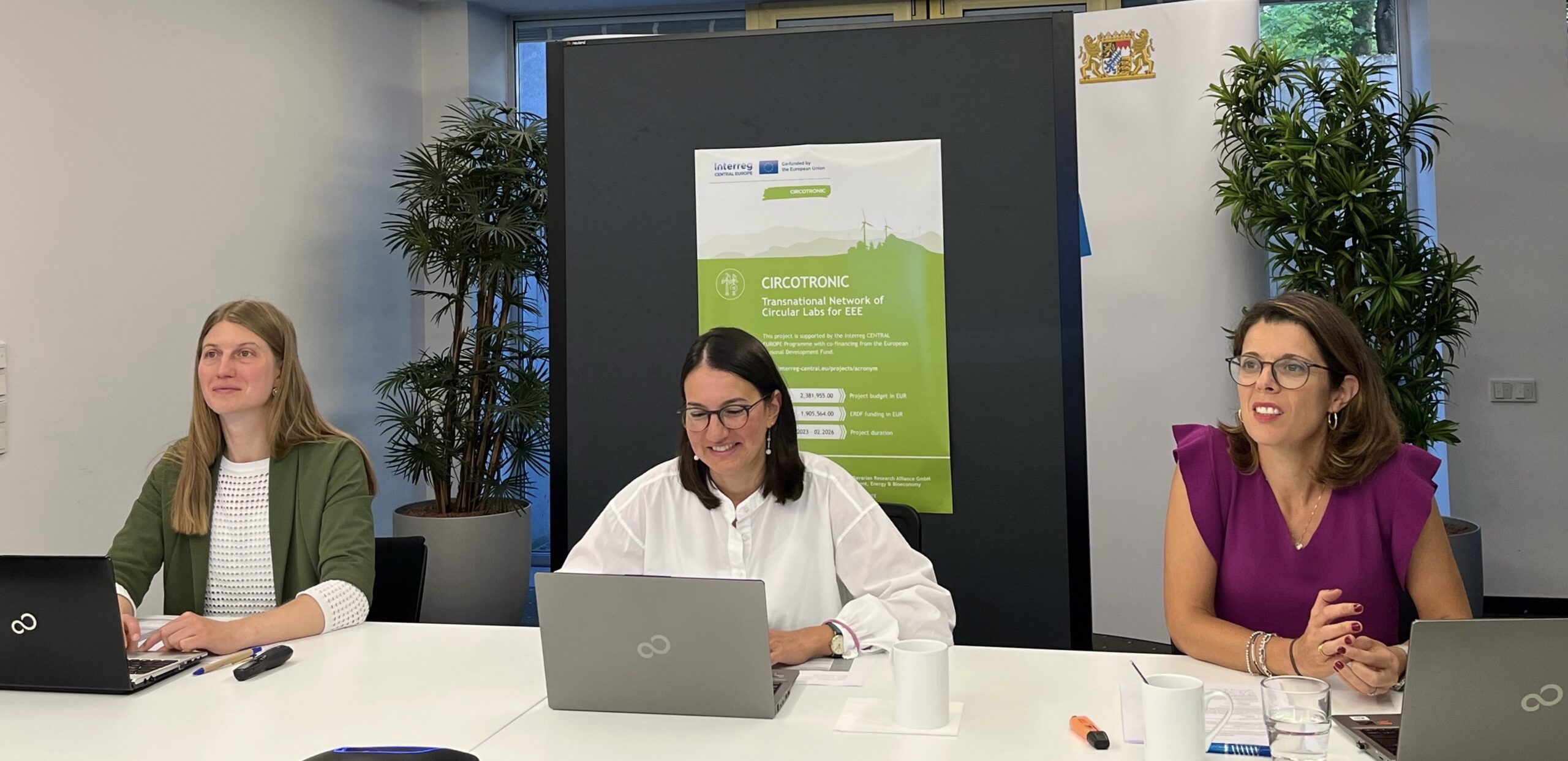What do Bavaria and the Košice region have in common concerning enablers and barriers of circularity in the electrical and electronic sector? In order to gain a deeper understanding of ground realities in Central Europe, the CIRCOTRONIC consortium orchestrated a series of regional foresight workshops between September and November 2023. These workshops convened industry experts, stakeholders, and SMEs to envision future scenarios and identify pathways towards enhanced circularity in the sector. Together with the participants, enablers and barriers were identified in the different regions of the project partners and then compared. Here is what we found out:
Navigating the path to sustainability is difficult. Moving towards circular electronics involves changing how businesses operate. Some companies are already leading the way, but many small businesses face challenges in getting involved. Making electronics simpler, easier to disassemble, and using materials wisely is essential. Additionally, electronic waste must be handled better.
Supporting sustainable practices and creating a circular economy for electronics is only possible if everyone plays a part. Governments should implement rules to encourage sustainable practices. New business models like renting and repairing electronics instead of always buying new ones have to be promoted. Using technology smartly with a digital product passport can help trace where products come from and where they go.
The participants of the workshop still faced roadblocks all over Central Europe. Despite the progress, there are still significant hurdles. It’s tricky to measure how much recycled material is in our gadgets, and not everyone is on board with the idea of reusing things, so the second-hand market for electronics still faces some skepticism and lack of trust. Plus, sustainable products can be more expensive, and some rules make it hard for smaller businesses to compete.
To overcome these challenges, we need smart tools and ideas. Drawing from the insights gleaned from the foresight workshops, strategic tools emerge in overcoming barriers and bolstering enablers for circularity. Material Flow Analysis (MFA), Life Cycle Assessment (LCA), and supply chain workshops offer critical insights into resource usage and environmental impacts, guiding sustainable practices. Circular Business Model Guides and online platforms for second-hand materials facilitate knowledge exchange and empower SMEs to embrace circular strategies. Collaborative design platforms and educational initiatives foster a mindset shift towards sustainable design thinking, paving the way for a circular future in the electronics sector.
Within the Circotronic project, each partner will test some tools with SMEs to work on a local level on the barriers and enablers identified in the regional foresight workshops. By working together and using these tools, we can make electronics better for the planet and for us. And to answer the question from the beginning: In both regions, Bavaria and Košice, the path towards a circular electrical and electronics sector is still long, but the regions can learn from each other and walk this path together!
Written by Susanne Hirschmann, Bavarian Research Alliance
